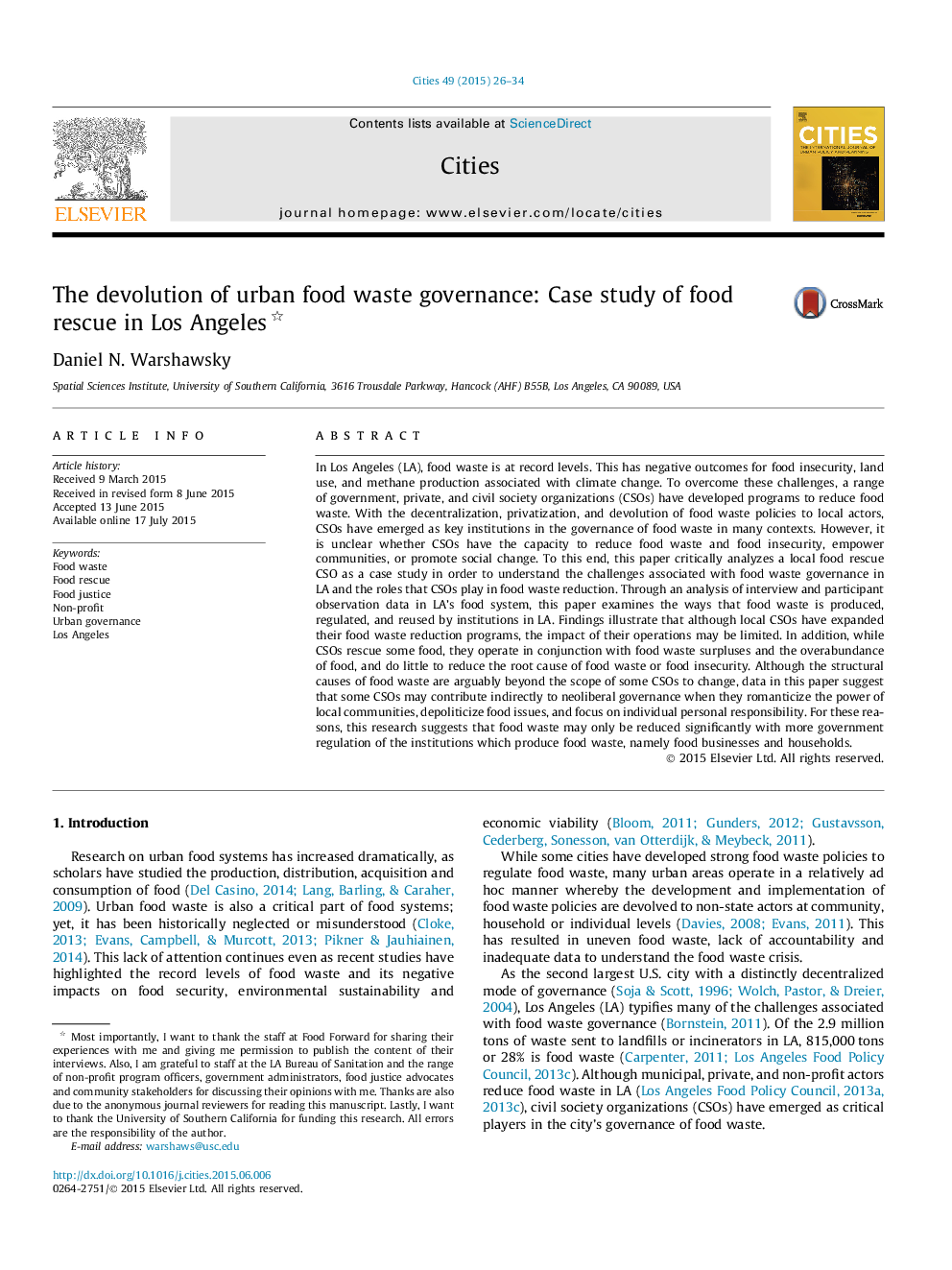| کد مقاله | کد نشریه | سال انتشار | مقاله انگلیسی | نسخه تمام متن |
|---|---|---|---|---|
| 1008226 | 1482347 | 2015 | 9 صفحه PDF | دانلود رایگان |
• Los Angeles has an ineffective food waste governance strategy.
• The impacts of non-profit food rescue organizations are limited in terms of addressing food waste and food insecurity.
• Food rescue non-profits reinforce neoliberal governance of cities.
In Los Angeles (LA), food waste is at record levels. This has negative outcomes for food insecurity, land use, and methane production associated with climate change. To overcome these challenges, a range of government, private, and civil society organizations (CSOs) have developed programs to reduce food waste. With the decentralization, privatization, and devolution of food waste policies to local actors, CSOs have emerged as key institutions in the governance of food waste in many contexts. However, it is unclear whether CSOs have the capacity to reduce food waste and food insecurity, empower communities, or promote social change. To this end, this paper critically analyzes a local food rescue CSO as a case study in order to understand the challenges associated with food waste governance in LA and the roles that CSOs play in food waste reduction. Through an analysis of interview and participant observation data in LA’s food system, this paper examines the ways that food waste is produced, regulated, and reused by institutions in LA. Findings illustrate that although local CSOs have expanded their food waste reduction programs, the impact of their operations may be limited. In addition, while CSOs rescue some food, they operate in conjunction with food waste surpluses and the overabundance of food, and do little to reduce the root cause of food waste or food insecurity. Although the structural causes of food waste are arguably beyond the scope of some CSOs to change, data in this paper suggest that some CSOs may contribute indirectly to neoliberal governance when they romanticize the power of local communities, depoliticize food issues, and focus on individual personal responsibility. For these reasons, this research suggests that food waste may only be reduced significantly with more government regulation of the institutions which produce food waste, namely food businesses and households.
Journal: Cities - Volume 49, December 2015, Pages 26–34
